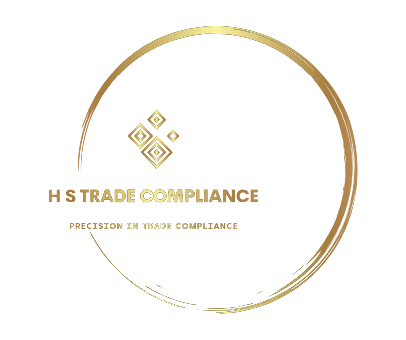What you Need to Know
Import and export permit applications in South Africa involve a series of steps and considerations. Here's what you need to know:
In South Africa, various types of import and export permits may be required, depending on the nature of goods and trade activities. Some common types include:
- Import Control Permits: Required for specific goods, commodities, or products identified by the International Trade Administration Commission (ITAC) for import control measures.
- Export Control Permits: Necessary for exporting goods that fall under controlled categories, such as certain minerals or agricultural products.
- Phytosanitary Certificates: Essential for exporting agricultural products to confirm compliance with health and safety regulations.
- CITES Permits: Needed for the export or import of endangered species or products derived from them.
- Permits for Controlled Substances: Required for the import or export of certain chemicals, pharmaceuticals, or hazardous materials.
The specific permits needed vary based on the goods being imported or exported and the regulations set forth by different government departments or agencies overseeing trade in South Africa. It's advisable to consult the relevant authorities or seek professional advice to determine the exact permits required for your specific trade transactions.
In South Africa, import and export permits are overseen by various government departments or agencies, depending on the specific type of goods or trade activities. The primary agencies involved in permits include:
International Trade Administration Commission (ITAC): Responsible for administering import and export control measures and permits.
South African Revenue Service (SARS): Manages customs and excise, overseeing the clearance of goods entering and leaving South Africa.
Department of Agriculture, Land Reform, and Rural Development: Handles permits for agricultural products and certain related goods.
Department of Environment, Forestry, and Fisheries: Regulates permits related to environmental conservation, endangered species, and fisheries.
Depending on the nature of the goods being imported or exported, one or more of these departments or agencies may oversee the permits required for specific trade activities.
Accurate classification of your goods according to the Harmonized System (HS) code is crucial in South Africa. The HS code is fundamental for precise permit applications, as it defines the relevant regulations and duties applicable to your imports or exports.
- Commercial Invoice: Detailing the goods being traded, their value, and terms of sale.
- Packing List: Describing the contents of each package.
- Bill of Lading or Air Waybill: Documenting the shipment and serving as a receipt.
- Certificate of Origin: Confirming the country where the goods originated.
- Import/Export License or Permit Application Form: Specific form provided by relevant authorities.
- HS Code Classification: Accurate classification of goods as per the Harmonized System.
- Insurance Certificate: Detailing the coverage for the shipment.
- Customs Declaration Forms: Providing information on the nature and value of goods.
The required documentation may vary based on the nature of the goods being imported or exported and the regulations stipulated by the involved government departments or agencies. It's advisable to consult the relevant authorities or a professional advisor for precise guidance on the necessary documentation for your specific trade activities.
Compliance with regulations regarding export and import permits in South Africa is crucial. It involves adhering to specific requirements set by government departments or agencies overseeing trade activities. This compliance ensures that the importation or exportation of goods aligns with legal and regulatory frameworks.
It includes:
Adherence to Permit Requirements: Ensuring that the necessary permits, licenses, or certificates are obtained for the importation or exportation of specific goods as mandated by relevant authorities.
Classification Accuracy: Precisely classifying goods according to the Harmonized System (HS) code to determine applicable duties, taxes, and regulations.
Documentation Compliance: Providing accurate and complete documentation required for permit applications, such as commercial invoices, packing lists, certificates of origin, and any additional forms mandated by authorities.
Conformance to Trade Policies: Abiding by trade policies and restrictions governing the import and export of certain goods, such as embargoed items, controlled substances, or endangered species.
Meeting Safety and Quality Standards: Ensuring that imported or exported goods comply with safety, quality, health, and environmental standards as stipulated by relevant regulatory bodies.
Non-compliance with these regulations can result in delays, penalties, or even legal repercussions. Therefore, ensuring strict adherence to import and export regulations is imperative for businesses engaged in international trade in South Africa.
Certain products or industries may necessitate licenses or registrations beyond standard permits. These additional authorizations could be mandated for specific goods, industries, or activities, and their requirement may vary based on the nature of the product or business operation.
It's essential for businesses engaging in international trade to verify if their particular product line or industry sector falls within these supplementary requirements. This verification process involves comprehensive scrutiny to ascertain whether their business operations necessitate additional licensing or registration beyond the customary import or export permits.
By conducting this verification diligently, businesses can ensure full compliance with South African trade regulations, avoiding potential penalties or disruptions in trade due to non-compliance. Seeking guidance from relevant authorities or trade consultants can be instrumental in understanding and meeting these additional licensing or registration requisites.
Be aware of any application fees and the processing time for your permit. These can vary depending on the authority and the complexity of your application.
South Africa imposes quotas and restrictions on certain goods for import and export permits. These limitations are designed to regulate the quantity of specific commodities entering or leaving the country and may apply to various products, industries, or trade activities. It's crucial to consult the relevant authorities or trade advisors to understand the specific quotas and restrictions relevant to your trade transactions in South Africa.
Monitoring changes in Import and Export Permit controls in South Africa involves several steps:
Regular Updates from Authorities: Keep abreast of notifications, circulars, or updates from relevant authorities such as the International Trade Administration Commission (ITAC) or South African Revenue Service (SARS). They often announce changes in trade regulations or permit requirements.
Industry News and Publications: Follow industry-specific news sources, trade publications, or legal updates that highlight changes in import and export regulations. This information can provide insights into any amendments or new regulations affecting permits.
Consulting Trade Experts: Engage with trade experts, consultants, or legal advisors specializing in South African trade regulations. They can provide proactive updates and interpretations of evolving permit control changes.
Online Portals and Resources: Regularly check official government websites, trade association platforms, or online resources offering updates on trade regulations and permit changes.
Networking and Forums: Participate in industry-related seminars, workshops, or forums where regulatory changes and their implications on import and export permits are discussed.
By adopting a multi-faceted approach involving information from official channels, industry-specific sources, expert advice, and continuous networking, individuals or businesses can effectively monitor changes in Import and Export Permit controls in South Africa.
In South Africa, maintaining meticulous records is crucial for import and export permit compliance. The record-keeping requirements aim to ensure transparency, accuracy, and adherence to regulations. Key aspects include:
Documentation: Keep comprehensive records of all permit-related documents, such as permit applications, approvals, or rejections, including any correspondence with relevant authorities.
Transaction Records: Maintain records of import and export transactions, including commercial invoices, packing lists, bills of lading, and certificates of origin.
Classification Records: Document the accurate classification of goods according to the Harmonized System (HS) code used for permit applications, ensuring consistency and precision.
Audit Trails: Create audit trails that track the movement of goods, demonstrating compliance with permit conditions, such as quantity, quality, and destination.
Retention Period: Adhere to the stipulated retention period for records, typically several years, as required by South African regulations.
By upholding stringent record-keeping practices, businesses ensure their ability to demonstrate compliance during audits, inspections, or inquiries by relevant authorities. This process also facilitates efficiency in trade operations, enabling accurate reporting and informed decision-making regarding import and export activities in South Africa.
Import and export control measures do not apply to all items. Nevertheless, used goods, second-hand goods, waste, and scrap generally fall under import control regulations, with a few minor exceptions. You can refer to the ITAC website for a detailed list of goods subject to import and export control measures
The policy regarding the import and export of goods varies across different industry sectors. Additionally, it's essential to note that many newly manufactured goods are exempt from import control measures. To assist us in providing you with precise policy information related to the import and export of specific goods, we kindly request that you furnish us with details of the goods in question.
To apply for a permit through HS Compliance, utilize our user-friendly online application wizard available on our website. As you proceed, our wizard simplifies the process, guiding you through each step seamlessly. Additionally, our team offers expert tariff consultancy services, ensuring that your specific import or export permit application aligns with regulations while providing necessary guidance and support.
South Africa's import and export permit process can be complex and varies depending on the type of goods and trade activities. Being well-informed and meticulous in your approach is crucial to ensuring smooth and compliant international trade operations.

